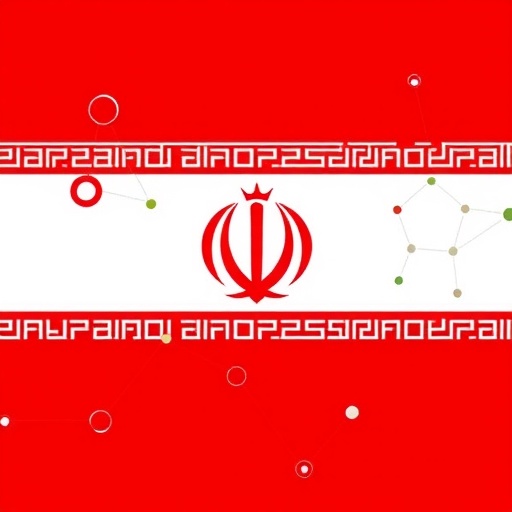The landscape of healthcare is constantly evolving, necessitating comprehensive approaches to ensure the efficient allocation of resources and the integration of effective technologies. In the context of Iran, a unique political environment presents both challenges and opportunities for the implementation of health technology assessment (HTA) practices. A recent study conducted by an erudite team constituted of Behzadifar, Azari, Bakhtiari, and others explores the intricate political dynamics that envelop HTA implementation within the Iranian healthcare system. Their findings contribute invaluable insights, unraveling significant barriers while delineating promising pathways for future advancements in health policy and practice.
The study, set against the backdrop of Iran’s complex political framework, underscores the importance of political actions and decisions that influence health technology investments and assessments. Researchers argue that the political will of key stakeholders, including government officials, healthcare professionals, and various interest groups, plays a pivotal role in determining the success or failure of HTA initiatives. In essence, their research posits that without the backing of influential political figures, the integration of HTA into the healthcare decision-making process may remain superficial and ineffective.
Moreover, the interplay between governance and health technology policy is profound. The authors contend that Iran’s hierarchical political structure leads to a multifaceted approach to health technology governance. Stakeholder engagement is often fragmented, resulting in limited collaboration among various entities. This lack of coherence can stymie progress, with critical delays occurring in the evaluation and implementation of new health technologies. Achieving alignment among these stakeholders is, therefore, vital for the successful execution of HTAs, as divergent interests can lead to opposing priorities and hinder effective policy development.
An essential part of the investigation includes the examination of how political ideologies shape health technology assessments in Iran. The authors keenly observe that the current political climate is influenced by a mixture of revolutionary ideals and modernization efforts. This ideological dichotomy directly impacts the prioritization of healthcare technologies. Consequently, certain technologies that align with the prevailing political narrative may receive expedited assessments and support, whereas others may languish due to perceived misalignment with governmental objectives. This situation necessitates a deeper understanding of the relationship between political ideologies and the HTA process to ensure a fair evaluation of all health technologies vying for integration into the healthcare system.
Furthermore, the research highlights the impact of economic factors on HTA implementation. Given the tumultuous economic environment in Iran, characterized by sanctions and budget constraints, health technology assessments face additional scrutiny. The study reveals that economic considerations often overshadow clinical evaluations, leading to compromises in the rigor of HTAs. This economic pressure influences how technologies are perceived, assessed, and ultimately adopted, underscoring the necessity for balance between financial feasibility and clinical effectiveness.
The researchers further call attention to the role of civil society and public engagement in the HTA process. In many cases, the perspectives of patients and the general public remain marginal within formal health technology discussions. The study emphasizes the need for transparent communication and inclusive practices to elevate these voices, thereby enriching the HTA process. Effective public involvement is essential not only for enhancing the legitimacy of health technology decisions but also for fostering a sense of ownership among constituents in the healthcare system.
As part of their concluding remarks, the authors contend that the successful implementation of HTA in Iran mandates robust and resilient policy frameworks. Policymakers need to consider structured approaches that encompass stakeholder engagement, ideological influences, economic realities, and public involvement to create a comprehensive environment for HTA adoption. This requires a commitment to fostering multidisciplinary collaboration among healthcare, political, and economic stakeholders. Without such an alliance, the potential for HTA to positively impact health outcomes in Iran remains limited.
The research team also points to international best practices as models for Iran’s HTA journey. By examining global case studies where political support and stakeholder collaboration led to enhanced HTA processes, they provide actionable insights that Iranian policymakers can incorporate. Understanding how countries with similar socio-political landscapes have leveraged HTA processes can offer valuable lessons, particularly regarding strategies for fostering political will and stakeholder collaboration.
In closing, the work of Behzadifar et al. presents a critical exploration of the integration of political analysis into health technology assessments within Iran. Their findings underscore a complex interplay of forces that shape the healthcare landscape in the country. As Iran seeks to navigate these challenges, the continued dialogue around HTA, grounded in political realities and stakeholder engagement, will be vital for advancing public health goals.
In summary, the study serves not only as a wake-up call for Iranian health policymakers but also as a potential blueprint for other countries facing similar challenges in health technology assessment implementation. Whether one considers the role of politics, the influence of public perception, or the importance of a cohesive health strategy, the research propounds that the path to effective health technology integration must be traversed thoughtfully and collectively, steering towards a healthier future for all.
Subject of Research: Political analysis of Health Technology Assessment implementation in Iran
Article Title: Political analysis of health technology assessment implementation in Iran.
Article References:
Behzadifar, M., Azari, S., Bakhtiari, A. et al. Political analysis of health technology assessment implementation in Iran.
Health Res Policy Sys 23, 124 (2025). https://doi.org/10.1186/s12961-025-01400-1
Image Credits: AI Generated
DOI: 10.1186/s12961-025-01400-1
Keywords: Health Technology Assessment, Iran, Political Analysis, Healthcare Policy, Stakeholder Engagement




